On the afternoon of May 18, 2025, in Gia Vien district, Ninh Binh province, the People’s Committee of Gia Vien district hosted a coordination workshop with the Center for Human Potential Research and the Dinh Tien Hoang Medical Research Institute on “Innovation in Local Medicinal Material Development from the Heritage of Saint Nguyen Minh Khong”. The event attracted a large number of experts, researchers, managers, and business representatives in the fields of medicine and medicinal materials.
MEDICINAL MATERIALS – A PRECIOUS CULTURAL HERITAGE
In his opening speech at the workshop, Mr. Le Van Cuong, Secretary of the Gia Vien District Party Committee, affirmed: “Gia Vien is a land rich in cultural traditions and diverse ecosystems, especially the limestone mountain flora. This place preserves a valuable treasure of folk medicinal knowledge, which is not only the ‘asset’ of the district but also makes an important contribution to the treasury of Vietnamese traditional medicine.”
The knowledge of medicinal plants in Gia Vien reflects the wisdom and adaptation of the indigenous community to the natural conditions and is the result of the accumulation of experience over many generations. With great potential and advantages, many localities, including Gia Vien district, have exploited and developed community tourism products associated with experiencing indigenous knowledge models,” said Mr. Cuong.
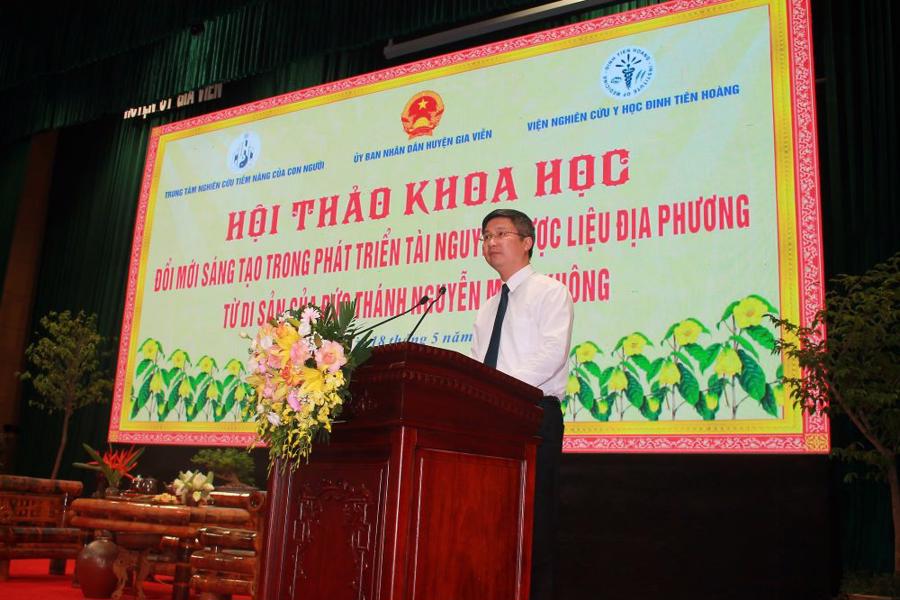
According to the Secretary of the Gia Vien District Party Committee, in the past time, Gia Vien district has deployed many models of conservation and development of medicinal plants, notably the construction of the Nguyen Minh Khong Herb Garden in the national relic site of Den Thanh Nguyen. The garden is divided into areas: Den Thanh Herb Garden, People’s Medicine Garden, and Life Garden. This is not only a place to preserve and display hundreds of precious medicinal plants such as golden tea, black vulture, cuckold, polygonatum, and agarwood but also an attractive destination for tourists who love health and traditional cultural experiences.
The community tourism model combining meditation, medicine, and tea was also introduced at the workshop. With the theme of “Meditation – Medicine”, this tour combines meditation, yoga, tea tasting, herbal baths, exploration of medicinal plants, and folk knowledge, contributing to the holistic health care of tourists’ physical, mental, and spiritual well-being.
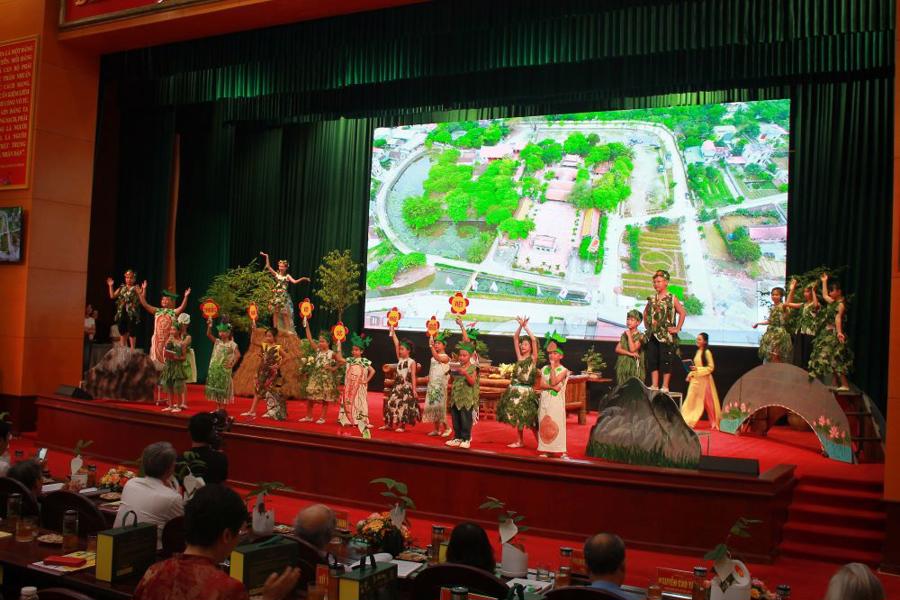
Other health care services such as steam baths, massages, walking, and healthy nutrition are being strongly developed, combining the pristine natural landscape and the unique cultural heritage of the ancient capital region. These models are helping Ninh Binh province to shape its brand as a health tourism destination, enhancing the value of local resources.
“In the current context, as the trend of returning to herbal and natural products is becoming more and more popular, the conservation, digitization, and development of local medicinal material resources are urgent tasks.”
Dr. Ngo Duc Phuong, Director of the Institute of Southern Medicine.
Dr. Ngo Duc Phuong, Director of the Institute of Southern Medicine, said that in the Nguyen Minh Khong Herb Garden in the national relic site of Den Thanh, the medicinal plants collected and grown here are classified according to different stages of life: from infancy, adolescence, middle age to old age. This approach helps visitors and the community easily access medicinal knowledge through biological, cultural, and spiritual symbols.
“The herb garden not only serves community education but is also a creative performance model, contributing to the preservation of traditional knowledge,” asserted Dr. Ngo Duc Phuong. At the same time, Dr. Phuong proposed the development of the electronic book “Gia Vien Dược Trí”, based on the digitization of data on medicinal plants in the Life Garden. This electronic book will integrate the names, images, botanical descriptions, uses, methods of use, and notes on the use of medicinal plants, helping to standardize and propagate folk knowledge in a modern way.
Dr. Phuong also suggested that Gia Vien district should conduct field surveys to expand the list of characteristic medicinal plants of the locality, especially in ancient medicinal valleys such as Thung Lau and Thung La, and the edge of Cuc Phuong forest – where many valuable and little-known plant species are still preserved. The recording and surveying of the use of medicinal plants by ethnic minority communities and families with a tradition of herbal medicine are also invaluable sources of information that need to be properly exploited.
GOLDEN TEA – A PRECIOUS “BIET DUOC” THAT NEEDS A SUSTAINABLE DEVELOPMENT STRATEGY
An important content mentioned at the workshop was the development of Golden Tea Cuc Phuong (Camellia cucphuongensis) – a rare and endemic plant in the northern limestone mountains, including Nho Quan district, Ninh Binh province. Mr. Hoang Trong Le, Deputy Director of the Department of Science and Technology of Ninh Binh province, said that golden tea not only has high medicinal value (antioxidant, antihypertensive, liver protection…) but is also a high-quality tea material with great economic potential.
However, this plant is currently facing the risk of depleting its gene source, weak propagation techniques, lack of closed production processes, and lack of synchronized commercial labels. To preserve and develop this resource, the Department of Science and Technology of Ninh Binh province has coordinated with central research institutes to implement a project to build a model for propagating golden tea by cutting and is completing the dossier for the certification label “Golden Tea Cuc Phuong”
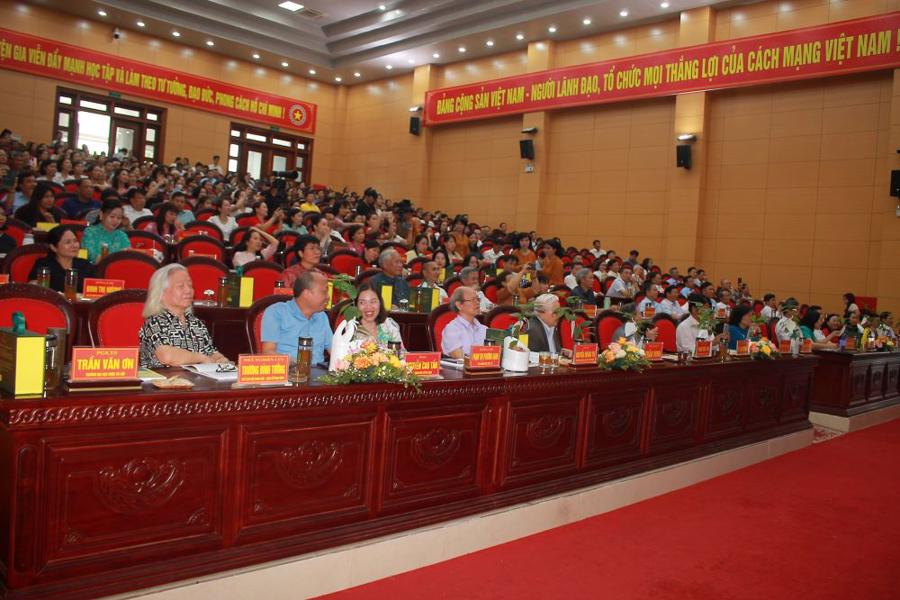
Building a brand, standardizing cultivation processes, expanding organic growing areas, and connecting with tourism products and OCOP products are the keys to enhancing the value of golden tea in particular and precious medicinal materials in Ninh Binh province in general.
Ms. Le Huyen Trang, Head of the Hanoi Representative Office of the Startup Fund for Science and Technology Enterprises (SVF), said that established in 2014, the Startup Fund for Science and Technology Enterprises in Vietnam (SVF) is proud to be the first socialized and non-profit fund in Vietnam with the mission of supporting the formation and development of the National Innovation and Startup Ecosystem. Up to now, SVF has cooperated with 24 provinces and cities and supported the capacity building of more than 4,924 enterprises.
Ms. Trang proposed a comprehensive initiative: “Enhancing the Value of Ninh Binh Golden Tea through Science, Technology, and Innovation”. With this initiative, SVF expects to contribute to a breakthrough for the Golden Tea industry in Ninh Binh province: increasing the number of enterprises participating in the production and business of this product, improving the quality and value of the product.
At the workshop, delegates proposed many synchronous solutions to promote the creative and sustainable development of medicinal material resources. The proposals focused on: building a local medicinal material startup ecosystem; connecting research – application – production – consumption; strengthening communication to raise community awareness; developing training programs on the use and processing of medicinal plants; and especially promoting the socialization of building southern medicine gardens associated with spiritual relics and traditional education.
Cicada Carcasses Fetch Surprising Price of Over $2 Million Per Kilogram
In recent days, traders have been constantly buying cicada carcasses, with the highest price reaching 2.2 million VND/kg.



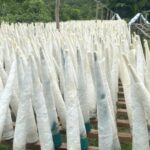
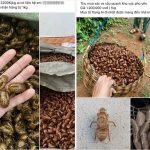
![[Photo Essay]: Experts, Managers, and Businesses Unite to Forge a Path Towards Sustainable Green Industry](https://xe.today/wp-content/uploads/2025/07/z678592918-218x150.jpg)


![[Photo Essay]: Experts, Managers, and Businesses Unite to Forge a Path Towards Sustainable Green Industry](https://xe.today/wp-content/uploads/2025/07/z678592918-150x150.jpg)


![[Photo Essay]: Experts, Managers, and Businesses Unite to Forge a Path Towards Sustainable Green Industry](https://xe.today/wp-content/uploads/2025/07/z678592918-100x70.jpg)







